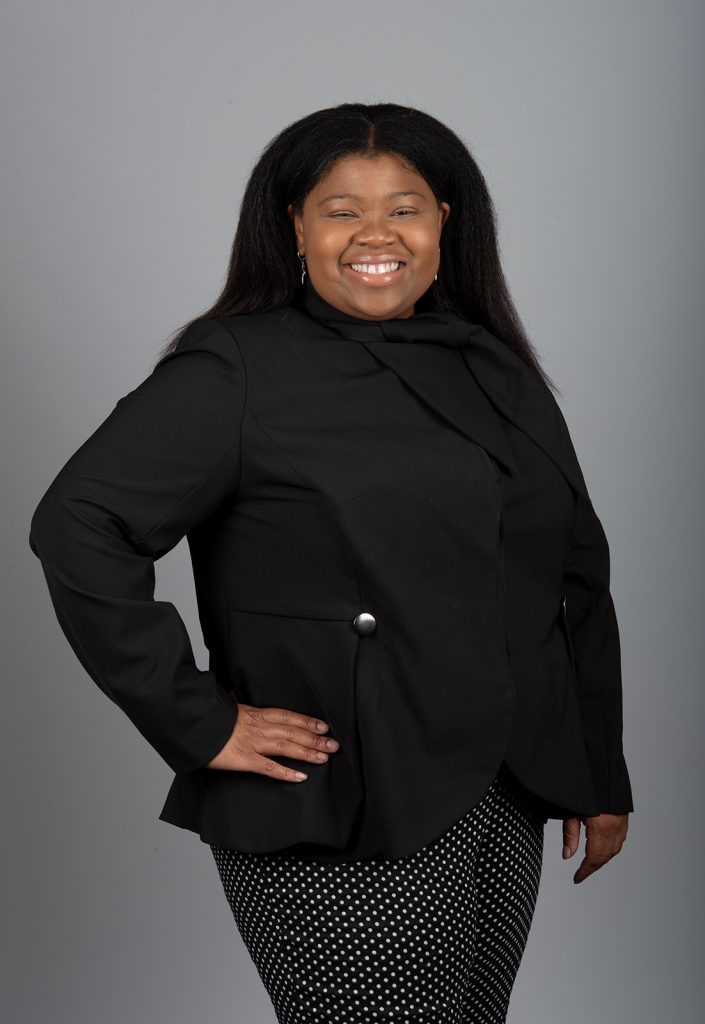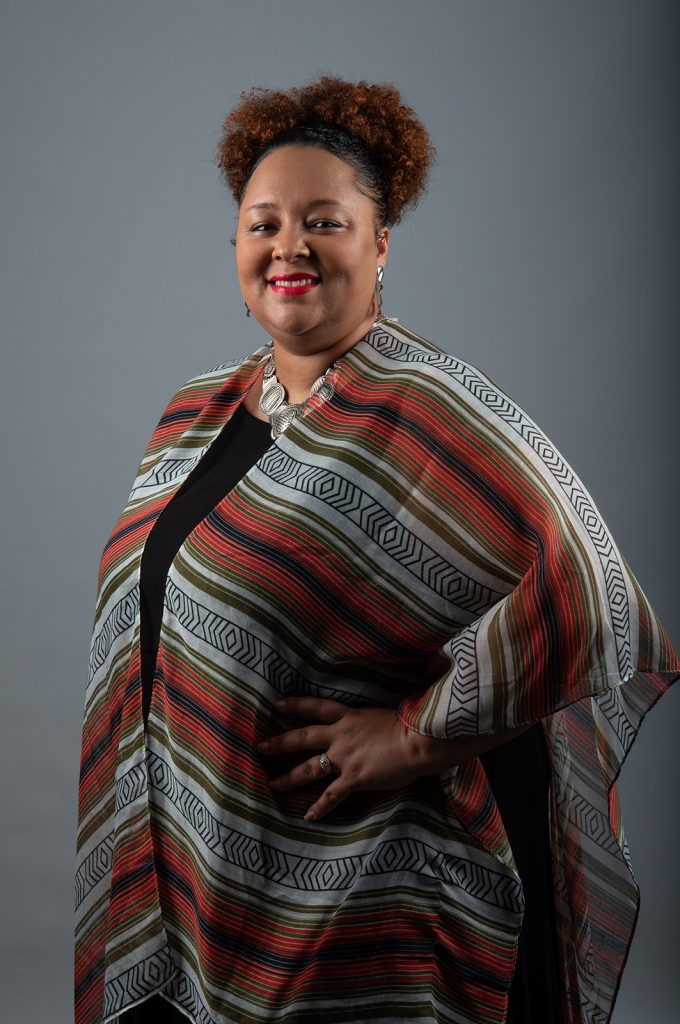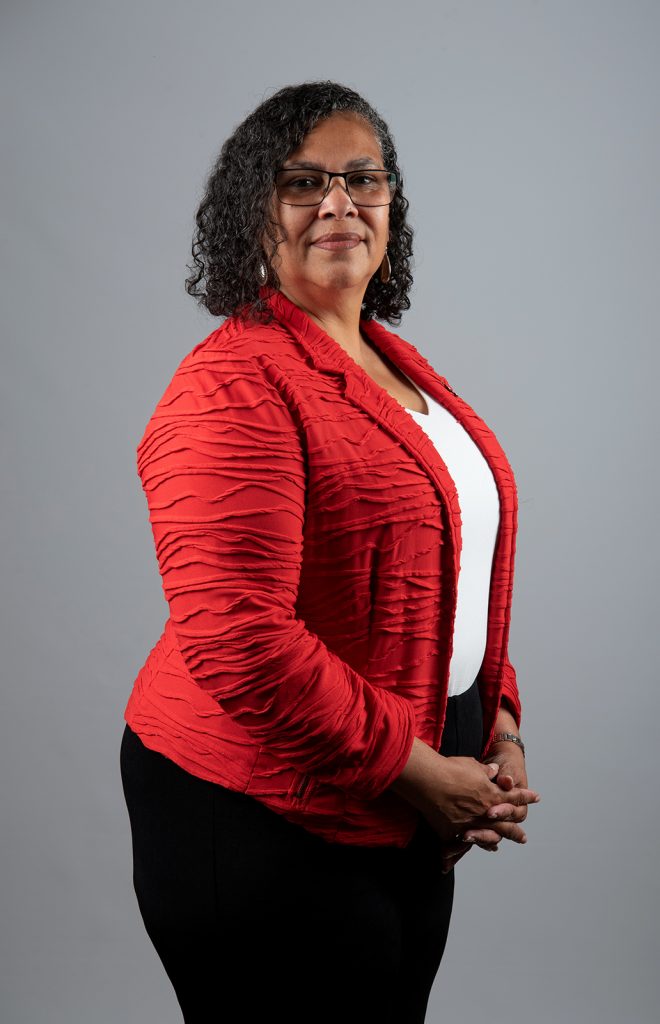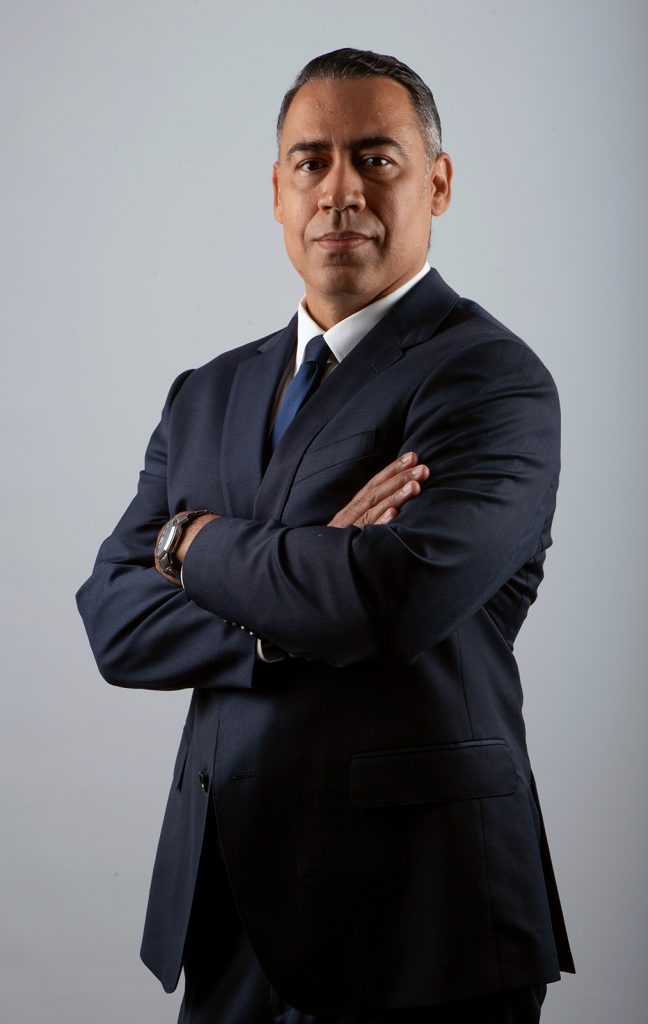
When you are white, you never have to think about your skin color. When you are Black, you always think about it—or someone reminds you—because no one is color-blind. There is always a recognition of race.
Race matters, as does understanding racism, which has been at the core of vigils across the country in recent months. It’s time to listen to the voices of protest and to understand the drumbeat of messages chanted during marches.
No justice, no peace.
Say their names.
I can’t breathe.
These words are a call for change that is often tied to the Black Lives Matter (BLM) movement, which began in 2013 with a Facebook post by Alicia Garza in response to the acquittal of George Zimmerman in the fatal shooting of Trayvon Martin, an unarmed 17-year-old Black high school student visiting family in a Florida gated community.
Garza was joined by two other Black activists—Patrisse Cullors of Los Angeles and Opal Tometi of New York City—in creating the platform #BlackLivesMatter. The movement strengthened a year later when another young Black man, 18-year-old Michael Brown Jr., was fatally shot by Darren Wilson in Ferguson, Missouri. A member of the police force, Wilson was not charged.
The death of yet another Black man at the hands of police—George Floyd in Minneapolis last May—sparked renewed pleas for action to uproot systemic racism. The movement has gathered support of major corporations such as Nike, Apple, and Amazon—as well as organizations including the National Football League—all condemning racism and systemic oppression.
Appears InBLM is now a global effort demanding action against racism and advocating for marginalized populations. One result of the movement is conversation at the grassroots level among families, between neighbors, and on college campuses. The dialogue is difficult but essential.
Too many Americans are convinced the race divide is closing, deny they are complicit, or are complacent as they let others work to bridge the gap. Some are too timid to show their lack of knowledge, do not have the language, or opt to remain silent, while others wrestle with whether they are anti-racist.
Those who are leading the way at Illinois State were asked what being anti-racist means, and how everyone can work to identify and disrupt racism. Their message is clear: Saying you are not racist is not enough. You have to educate yourself, speak up when it’s uncomfortable, take a stand, act, and step aside so Black people can move forward.
There is no finish line, and there is enormous work to do. Change begins with a conversation. Let’s get started.
Questions all should ask
Dr. Christa Platt, M.S. ’09, Ph.D. ’17
Director of the Multicultural Center, former director of Diversity Advocacy
What does it mean to be anti-racist, and how does it differ from saying you are not racist?
Anti-racism is the active disruption of oppression. Racism is harmful, dangerous, deadly, painful. Racism is alive and always has something to accomplish by dehumanization. Being a non-racist doesn’t respond to racism or dehumanization. Racism needs a timely, appropriate, active, and intentional response.
What does anti-blackness mean?
Anti-blackness is a weapon to dehumanize Black people. Anti-blackness says that Black people are inherently inferior. Anti-blackness exists because whiteness has been normalized as standard, right, and good. Anything that deviates from whiteness has been deemed wrong, dysfunctional, and broken. Anti-blackness is the dehumanization of Black people because of their hair, language, bodies, families/traditions, intellect, and communities. Anti-blackness can be seen in all systems and institutions—education, criminal justice, health care, housing. It can be expressed as distrust of Black leadership, questioning the integrity of Black experiences, unfair sentencing in the justice system, at-risk labels for Black minds, excluding Black history from curriculum, hyper surveillance of Black people, and police killings of unarmed Black people. Anti-blackness is so pervasive it can go unnoticed. There is a need for awareness, unlearning, and addressing where anti-blackness is active and harmful.
What does it look like to be an ally?
You can’t be an ally until you have been deemed an ally from the community you desire to support. The oppression of marginalized groups is constant, but allyship is not. It takes a daily choice to show up, speak out, and make room for voices that have been historically silenced. There are no bragging rights when it comes to allyship. It must be aligned with humility.
People of color say it’s not their job to educate white people on racism. Are they saying it’s every person’s responsibility to educate themselves?
Absolutely. Remember racism is active, painful, and seeks to harm. It’s not the job of the oppressed to continue telling their stories, revealing scars, and reopening wounds to create learning opportunities. There’s generosity in sharing personal traumas for the sake of others learning. It’s important that those who are interested in learning about racism not solely depend on Black people to reinjure themselves for learning purposes. The burden has to be on the one who needs to learn. Those who are oppressed have to engage in learning. Historical context about race and racism is not taught in American schools. We all need to learn and unlearn.
What do you say to someone who has made a racist comment, especially if it’s a family member or someone who has power over you?
When a racist comment is made, you have a choice. For those in the fight and experiencing battle fatigue, sometimes the choice is protection of energy and peace. For those desiring to be allies, the choice is whether you counter the dehumanization of oppressed people. When you engage, be ready for resistance. Be prepared to give people a chance to change their stance. Be transparent about your journey in anti-racism. Consider the conversation an open door. Be informed with historical context as your foundation.
How do you react when someone says something they believe is inclusive, like “All lives matter,” or “I don’t see color?”
The reason we say “all lives” as a retort to “Black lives” is because as a nation, we have not reconciled with American violence and the sins of slavery, segregation, redlining, Black codes, Jim Crow, etc. The American Black experience is inextricably linked to structural and institutional racism. All lives have not experienced these injustices. Those crying out for justice for Black lives understand the value of every life. The question is, do those who respond with “all lives” understand the value and fight for the humanity of Black people? All lives matter in response to Black lives matter is anti-Black, whether intended or unintended. To align with the humanity of Black people requires a paradigm shift in thinking and cultural humility, which requires becoming a student of the person speaking about oppression. If you don’t want to learn from people, believe, and affirm those telling their stories, this is going to be almost impossible. When Black people make outcry about the value of their lives, you either stand with them or against their humanity.
Can everybody do this?
Everybody has the ability to do this work. It is always a decision, a choice. When you learn that you have anti-Black policies, you have a choice of if and how you respond. When those who are being oppressed share their experiences, you have a choice on whether you believe them. Beliefs always determine action. When racist rhetoric shows up, you have the choice to be courageous, identify it, and champion for the humanity of the oppressed. When you stand with the oppressed, you give others the opportunity to choose well and align with humanity.
Genesis Robinson, Senior, English Teacher Education
Former Black Student Union vice president, Anti-Black ISU activist, President of Urban Needs in Teacher Education (UNITE)
You’ve been very active in advocacy and leadership. What advice do you have for someone who wants to advocate for racial justice?
You need to be self-aware. You need to examine your own biases and everything you have going on and once you get yourself together, you can start to become an ally. I’ve used this language “ally,” but honestly I would say comrade. An ally is the person who comes and stands when I can’t stand, and I need both of us to stand together. I need both of us to be on the front lines at the same time because when we just have Black bodies, we aren’t seen as valued. If you’re going to stand for something, you might be knocked down. You have to be willing to fall. Our comrades not only need to do the research but stay with it and then do something. Move. Have an uncomfortable moment. Do book circles, do something with the people who you know aren’t talking about this work. Exhaust every resource you have to dismantle the oppressive system that you might have had a hand in creating, or you might have a hand in perpetuating, or you may be complicit in. But you have to have that uncomfortable moment where you are exhausting your resources and exposing these things. We have a history. Learn from it. And expose yourself and others to understand race is not even real, it’s a social construct. It’s a lot of education, self-education.
Sometimes people are reluctant to be advocates because they don’t have the language, and they’re afraid of saying the wrong thing. What would you say to them?
Trial and error, it’s a process. Nobody’s perfect. This is all a journey. No one is going to become an anti-racist, it’s not a point you arrive at. There is no finish line. It’s a consistent journey, and you’re always going to have to challenge yourself to become better.
What is the bravest thing someone can do?
Sitting with discomfort is brave. Exposing yourself and exposing others, that takes a lot of bravery. When I’m saying exposed, I’m saying stuff people could lose their jobs for. For people my age, we’re still becoming independent, people can literally get kicked out of their homes or might take abuse for standing up for Black lives. That also takes bravery.
Angell Howard, ’10, M.S.’13
Coordinator of professional development and staff training, Student Affairs
What are people struggling the most with when it comes to anti-racism?
People are struggling with what anti-racism means. They’re giving it a meaning that is only black and white and it’s not. It’s about policies and systems in place that allow racism to breathe freely through that need to be broken down.
You teach cultural competency. What message do you hope people will take away from that training?
I want people to feel comfortable with the fact they will never know everything about everyone. They must be continuous learners and always show up in any space ready to listen and absorb information from people who may look, think, love, and believe differently than they do. In my trainings, I use tools to elicit empathic responses to help individuals connect to the experiences of others even in the midst of ambiguity. I consistently see how much of a struggle this is for so many people. They will either allow themselves to feel the discomfort, or they allow themselves to become resistant. The keyword here is allow, which means they always have a choice in what they think and believe. My goal is to challenge that resistance, encourage them to educate themselves, and when they finally read all of the pages that were missing in their history textbooks, I ask them to allow their minds to be changed.
Dr. Doris Houston
Interim assistant to the president for diversity and inclusion Chair, president’s Diversity and Inclusion Advisory Council
Confronting racism can be difficult. What advice do you have for challenging it?
Those of us who have committed to having the courage to confront racism, whether that’s in our own families or our friends or our colleagues, really need to start with the expectation that it is uncomfortable. If we’re committed to anti-racism and social justice, everyone may not be on board. However, we as a society need a deeper understanding of how our daily lives are affected by privilege. There are those who have the privilege to walk in a store without being followed, to jog or drive the streets without fear, or to apply for a home loan without being denied due to the color of their skin. Unfortunately there are those in our society who remain resistant to that truth, and it takes courage to stand firm in the values of social justice—particularly when we are communicating with close friends or family members. Nevertheless, we are called upon to build bridges when we can, and set boundaries when we must.
What do you have to have as an individual to do this work?
We can’t make changes unless we have a critical self-reflection about our own privilege, our own unearned advantages, and the biases we hold. It’s something that’s ongoing, it’s not one and done. We have to commit to learning our history of our country, of society, and learning how those systems of oppression advantaged some groups over others economically, educationally, politically and socially. That’s a lot of work to do that, to commit to social justice, to put ourselves out there so we are engaging with individuals from diverse backgrounds, developing friendships, asking other people to mentor us and teach us. It really is a full transformation of how we move through the world.
What else is critical?
The partnership and support of community leaders. Sometimes we keep ourselves in a bubble, but we are members of the community. We need to do our role as contributors to the community and also allow the community to be able to support us, groups like the NAACP, Not in Our Town, some of our faith-based groups. We need to rely on them to also support our work and vice versa. Our role within this community—both as advocates for our students but also as advocates for the community at large when it comes to issues of racism, oppression, groups that are underserved—is really important.
Dr. Touré Reed
History professor, Author, Toward Freedom: The Case Against Race Reductionism
What would it take to have solidarity?
Many of us who identify as liberals, progressive, or woke have come to embrace a number of frameworks that, ironically, undermine solidarity. Solidarity requires mutual empathy. But I think the current “allies” discourse, ironically, undercuts this aim via attachments to stark notions of “privilege” and grievance that tend to presume monolithic experiences and perspectives among members of so-called dominant and subordinate groups. Here’s what I mean. It is unquestionably true that, before the pandemic, African Americans were more than twice as likely to live below the poverty line as whites. About 20 percent of Blacks lived below the poverty line, while about 10 percent of whites did. Of course, since there are five times more whites in the U.S. than Blacks, the number of whites who lived below the poverty line was twice the number of Blacks in poverty. Likewise, if 22 percent of Blacks lived below the poverty line, then nearly 80 percent of Blacks lived above it. Despite the complex realities, though, we tend to think of Blacks as a monolithically poor, oppressed group and whites as monolithically wealthy and privileged. Because our discourse on inequality centers on race at the near total exclusion of class, we tend to gloss over the things that the masses of Black, brown, and white people have in common. If we really want to build solidarity, we need to approach each other with empathy rooted, at least in part, in the common ground we share.
What does leadership look like when it comes to anti-racism?
This is complicated for me, because I’m not entirely sold on the framework. First, there is a ubiquitous discourse on training leaders that just seems fundamentally anti-democratic to me. We shouldn’t be training leaders, we should be training responsible citizens. Second, racism is a real problem. But even though I’ve dedicated my intellectual life to understanding and fighting racial inequality, I wouldn’t describe that project as “anti-racism.” Instead, I see the important struggle as ending material deprivation for Blacks. What isn’t likely to yield a lot of progress is trying to challenge racial inequality or even “racism” by saying: ‘Even though we’ve never met before, I know, because you’re white, you’re privileged and you suffer from the original sin of implicit bias. So, we’re gonna grant you absolution through anti-racism training and public testimony.’ If all we want is self-affirmation, the above is a reasonable approach. But if the charge is persuasion, then the above gospel won’t reach much beyond the choir. Rather than identifying or training leaders to fight racism, the better course of action would be to train organizers to educate people about the sources of racial inequality. This would help build solidarity.
What needs to happen at ISU?
DR. PLATT
What steps can we take to become an anti-racist university?
We have to actively disrupt the systems, not fix people. Who’s to say that oppressed people need to be fixed? We need to address the system that is oppressing them. That’s one of the greatest needs to be an anti-racist institution—switching our framework, hearts, and minds that we are not here to fix people. We are a historically white institution. We are built on a foundation that needs to be disrupted. You have to examine your work, policies, written practices, and unwritten rules. This takes work. We have to be willing.
Where is ISU in that process?
We are positioned to love Illinois State enough to be critical about where we need to actively disrupt oppression and elevate addressing the needs of our students who are making outcries to be heard, seen, and valued. We can love this institution enough to say we must do better.
The new Multicultural Center is set to open this year. What changes will that bring to campus?
We have an opportunity to help the campus move from being a multicultural institution to anti-racist. Having the physical space is important because the students asked for it, and it will create many opportunities for community. Our goal is to support our campus in embracing what it means to be an anti-racist community committed to justice and equity. It is a large assignment, but what an honor to be a part of something that is so important to ISU’s students and mission. There are opportunities to be a proactive center that teaches, trains, and engages in the work of anti-racism. That’s exciting to me.
GENESIS ROBINSON
You went to a college prep high school recognized for having the highest graduation rate of any high school in Chicago, with 88 percent going to college. How was your transition to the classroom here?
There was a disconnect with higher education in general for me. I felt like I did have to work twice, sometimes three times as hard as my non-Black peers because of stereotypes and microaggressions. I would be in class and I was looked to for some type of cultural insight. Say we were talking about high-needs schools, which we know are predominately students of color, I’d be looked to. And I’m like, ‘I’m a student. I have questions too, just like you all.’ I had a roommate who was a different race than me and she thought it was OK to say the “N” word. I went to Illinois State to further my education and the person who I was randomly placed in a room with is using racial slurs against me. What do I even do? I was just confused. I shared with her that this doesn’t make me feel comfortable. She didn’t understand why because it was just a word, and that caused me more trauma.
You arrived on campus in 2017. Have you noticed progress in the last four years?
I have but I would call it performative, I wouldn’t call it liberating for Black students. I wouldn’t call it equitable yet. I don’t want to discredit the administration and say they’re not doing anything, but they’re not doing enough. We’re only saying this because we care.
ANGELL HOWARD
What do we have to do as a university?
We have to speak it out, we have to stop avoiding it, and we have to admit that we’re not perfect. If we really want to create change and be different, then we’ve got to say, ‘Hey, we know we need some work. We’re listening, and we are working very hard to get it right.’ That’s being honest. We must not be performative and move beyond “low-hanging fruit.” There are some issues and policies that need time and energy to dismantle. If we stay focused on low-hanging fruit, then we will never get to what is really needed to see true and sustainable change.
In my trainings, I often have people tell me that they fear doing and saying the wrong things. I tell them that they have to stop waiting to be perfect to stand up for what is right. None of us will ever be perfect. The only way you’re going to learn what to say and what to do is to do it and when you make a mistake, take the correction and keep going. We are willing to do this with everything else in life except this. We’ll test out roller skating or running, and we’ll keep on doing it until we get stronger and better, but we don’t do that when it comes to justice and humanity. We have to keep doing it until we get it right.
Who has to lead this effort?
We of course need our institutional leaders to lead by example and show themselves to be working diligently toward being anti-racist individuals who aspire to have an anti-racist institution. But we also have many great anti-racist staff and faculty on this campus doing some amazing work. Institutional leaders must acknowledge, collaborate, protect, and support them.
What is your hope for the next generation of students?
The next generation, they’re ready to do it, they’re ready to fight. We have to equip them with historical knowledge, so they completely understand what and who they are fighting. I am very proud of our students who are coming together to fight for change.
DR. HOUSTON
What do we need to commit to in order to move forward in becoming an anti-racist campus?
We have to face the difficult truth about systemic racism in our society, and we are a part of that society. Our faculty, our students, and our staff come to this campus as members of a society where we have learned racist views from our own upbringing, not having the full truth and understanding about our country and its history and the privileges and advantages that white European immigrants had. If we don’t acknowledge that and how it continues to play out, then our efforts will frankly be really superficial.
We have to also examine our role as an institution of keeping those systems of oppression in place, for example, like tenure and promotion decisions, hiring practices, student support efforts, and our role within the larger Bloomington-Normal community. As human beings, we are naturally drawn to those who are like us, someone who has a similar background, may have a similar world view, or went to the same schools. As a result of that, when we’re thinking of hiring or thinking about what we consider qualified, we tend to perpetuate having individuals who are like ourselves. We really are at a point at ISU we are being called upon to examine our role in keeping the status quo, those systems of oppression, and how we can go about dismantling those.
DR. REED
What can we do to move our campus forward in becoming a more diverse and inclusive community?
Unless one is a billionaire, one person acting alone can never be an effective change agent. However, one person operating in concert in common cause with others can make a huge difference—as part of a movement. I recommend involvement in any number of organizations/groups centered on promoting diversity and inclusion. Involvement with campus affinity groups can be impactful—Asia Connect, Association of Black Academic Employees, Organization of Latino/a Employees, and Triangle Association. RSOs (Registered Student Organizations) serve much the same purpose.
One of the nice things about working at ISU is that upper administration—going back to when Dr. David Strand was president—has long been invested in making the University more hospitable to diverse faculty, students, and staff. That doesn’t mean that the University has always gotten everything right from the start; no institution ever does. But ISU has been moving in the right direction.
"time" - Google News
June 01, 2021 at 02:29PM
https://ift.tt/2SLUHcL
It's time to talk - News - Illinois State - Illinois State University News
"time" - Google News
https://ift.tt/3f5iuuC






No comments:
Post a Comment